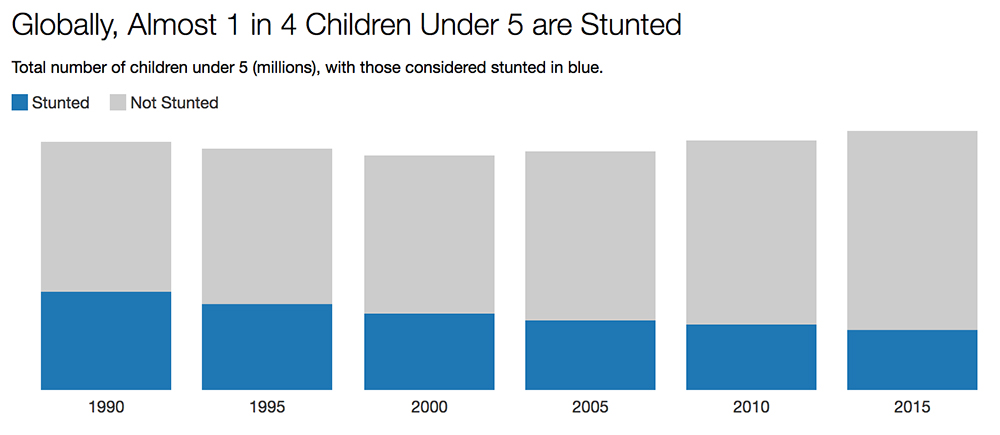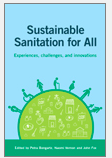by Leslie Van Patter | Jun 5, 2017 | News
The organization Reach for Change Africa supports the development of social enterprises. It reports that over the last 5 years over 1 million African children have benefitted from social enterprise development. “The non-profit organization, which, this year, is marking its 5th anniversary themed “Accelerating Impact. Driving Change”, also reported that over 300 early-stage social entrepreneurs were supported to develop organizations that are improving the lives of children, youth and women in 7 African countries.” Read More…

by Nancy Gilbert | May 31, 2017 | News
According to the World Bank, almost 1 in 4 children, globally, are stunted. We know that poor sanitation contributes to stunting. In Senegal the WB is supporting a multi-sectoral approach which is having excellent results. Stunting has now dropped to 19%, the lowest in sub-saharan Africa! Read More…
Source of diagram
by Nancy Gilbert | Apr 24, 2017 | News
Do you want learn how to apply concepts of sustainable faecal sludge management (FSM) on a city-wide scale?Eawag-Sandec and École polytechnique fédérale de Lausanne are launching a free 5-week online course “Introduction to FSM” on May 1 on the internet platform Coursera. It will remain online constantly and you will be able to sign up any time to join a course session. The course lecturers will mainly interact on the forum during the first session (May 1 – June 11 2017). Read More…
by Nancy Gilbert | Apr 5, 2017 | News
The 16 national coordinators work in priority countries in Africa and Asia and are an important and distinguishing feature of WSSCC. This report is focused on the WSSCC national coordinators, the vital work they lead at country level and their considerable ongoing impact. Read the report.
by Nancy Gilbert | Apr 4, 2017 | News
Read how Charity: Water’s passion for accountability and transparency is driving them to develop new ways to monitor water flow and gather data, as well as novel fundraising approaches. Read article on Fast Company magazine March 20, 2017.

by Nancy Gilbert | Mar 29, 2017 | News
Published in June 2016 this book covers key themes by exploring current experience, practices, challenges, innovations and insights, as well as identifying a future research agenda and gaps in current knowledge. Describing the landscape of sustainability of CLTS and sanitation with reference to the Sustainable Development Goals (SDGs) and through examples from Africa and Asia, the book captures a range of experiences and innovations from a broad range of institutions and actors within the WASH sector, and attempts to make recommendations and practical suggestions for policy and practice for practitioners, funders, policy-makers and governments.
To download visit: http://www.developmentbookshelf.com/doi/book/10.3362/9781780449272


